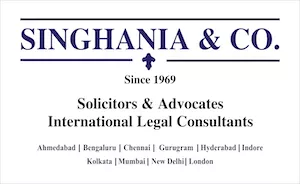The consequences of adage, “If you think compliance is expensive, try non-compliance” are more pronounced on companies missing minor procedural aspects while raising private funding, resulting in gigantic consequences.
Start-ups in India are run by smart brains who work hard in innovating and developing new technology, however, due to financial constraints they are unable to hire good legal advisory to ensure mandatory legal and regulatory compliances.
This article intends to apprise the promoters and directors regarding the importance of expert legal support and the consequences of missing prescribed compliances.
The consequences of minor procedural errors can very well be gauged from the orders passed by adjudicating authority [i.e. Registrar of Companies (RoC) and Regional Director (RD)] imposing penalties that runs into millions of rupees for procedural errors as trivial as –
- not accepting the investors funds in a separate bank account;
- utilizing investor's funds before issuing securities to them;
- utilizing investor's funds before filing the return of allotment with RoC; and,
- initiating another offer before completing any prior investment round.
Exposure to Draconian Penalty
The adjudicating authority has been empowered under various provisions of the Companies Act, 2013 (Act) and rules made thereunder to impose penalty on companies as well as its directors, promoters and other Key Managerial Personnel (KMP). Any minor procedural error undeniably exposes the directors, promoters & KMP to draconian penalties such as,
- lower of ₹ 20 million or penalty which may extend to the amount raised through private placement;
- direction to refund all money with interest to the subscribers/investors;
- penalties are imposed severally on companies and its directors / promoters / KMP;
- additional punishment of fine not less than ₹ 25,000 which may extend to ₹ ½ million, in case the company fails to pay the penalty imposed by the adjudicating authority within 90 days; and,
- additional punishment on officer in default with (a) imprisonment which may extend to 6 months, or (b) with fine not less than ₹ 25,000 but which may extend to ₹ 1,00,000 or (c) with both, upon his failure to pay the penalty imposed by the adjudicating authority within 90 days.
Personal Liability of Directors / Promoters / KMP
Adjudicating authorities, in their orders, hold directors/promoters/KMPs liable to pay huge amount of penalty from their own personal resources. This causes them to pay penalties beyond their means while also exposing them to high risk of facing imprisonment for non-payment of the penalty.
No Judicial Door to Knock
Cases of non-compliance of provisions provided under the Act for raising funding through private placement are heard and decided by the respective RoC having jurisdiction, and the only remedy available is to appeal before the concerned RD having jurisdiction. Both the RoC and RD work under the administrative control of Ministry of Corporate Affairs (MCA) and there is no provision of appeal to the National Company Law Tribunal (NCLT) and / or any other court.
Guiding Principles Followed in Letter, Ignoring the Spirit
The adjudicating authority has to follow certain guiding principles while deciding quantum of penalty, as prescribed under Rule 3(12) of the Companies (Adjudication of Penalties) Rules, 2014. These guiding principles are,
- Size of the company;
- Nature of business carried on by the company;
- Injury to public interest;
- Nature of default;
- Repetition of the default;
- The amount of disproportionate gain or unfair advantage, wherever quantifiable, made as a result of the default; and,
- The amount of loss caused to an investor or group of investors or creditors as a result of the default.
Despite of such guiding factors that must be followed by the adjudicating authority, several decided cases do not show much adherence in spirit. Though the authority has reproduced the above principles in their orders, but they have still imposed the maximum penalty and in some cases, penalty exceeding the prescribed maximum.
Some Respite to Small Cos, Start-ups & One Person Companies (OPC)
There is some respite provided to small companies, start-ups and OPC from these gruesome penalties. Section 446B of the Act provides that in case of a small company, start-ups and OPC, the penalty imposed cannot be more than half of the penalty prescribed in the Act subject to maximum of ₹ 2 lakhs on such companies, and maximum of ₹ 1 lakh on the officer(s) in default.
Small company, as defined in Section 2(85) of the Act, is a company whose paid up capital does not exceed ₹ 40 million and whose turnover does not exceed ₹ 400 million. However, it is important to note that public companies, holding companies, subsidiary companies, Section 8 companies and companies which are formed under special acts, are exempt from the definition of small companies.
Separate lash for each infraction
It may so happen that a company may miss compliance for more than one procedural aspect in raising private funding viz., not receiving funds in a separate bank account [Sec. 42 (6) of the Act], utilising funds before issuing securities to the investor [Sec. 42(4) of the Act] and utilising funds before filing return of allotment [Sec. 42(8) of the Act]. In such multiple procedural non-compliances, the RoC treats each infraction as a separate offence, and the penalty then imposed on company as well as directors / promoters is multiplied by the number of infractions.
Analysis of Some Orders passed by Adjudicating authorities (RoC and RD)
- Payswiff Technologies Private limited:
In the case of Payswiff Technologies Pvt. Ltd., RoC Hyderabad on 15th May 2023 passed an order levying penalty of ₹ 8 million on the company and ₹ 2 million each on their six directors for violating the provisions of Section 42(6) of the Act, which required receiving funding in a separate bank account, and provisions of Section 42(4) of the Act, which prohibits the utilization of such funds raised before allotment of securities to the investors. The imposed penalty, however, was reduced to ₹ 6 lakhs to the company and ₹ 1 lakh each for the six directors through an appeal made by the company to the RD of the South-East region.
- Cookiejar Technologies Pvt Limited:
The case of Cookiejar Technologies Private Limited is an excellent example of having multiple penalties imposed by the RoC for every infraction under Section 42 of the Act. In this case the RoC Maharashtra-Pune on 30th June 2023 passed an order levying penalty of ₹ 2 lakhs on the company and ₹ 1 lakh each on its 3 directors. The company has made three separate infractions (i.e. not accepting funds in a separate bank account, utilized funds without filing return of allotment and delayed filing such return). Therefore, RoC imposed ₹ 2 lakhs penalty on company for each violation totalling to ₹ 6 lakhs, and similarly ₹ 1 lakh on each of the 3 directors for each violation, totalling to ₹ 3 lakhs to each director.
Since the company falls within the definition of a small company, reduced penalty was imposed as per Section 446B of the Act.
- Tatva Chintan Pharm Chem Limited:
Tatva Chintan Pharma is a listed company. However, they raised funding through private placement and failed to receive investor's money in a separate bank account. RoC Gujarat on 31st Dec 2021 imposed penalty of ₹ 10 million on the company and ₹ 2 million each on three directors and ₹ 2 million on CFO and ₹ 2 million on Company Secretary. On an appeal to Regional Director, North-West, the RD revised the penalty to ₹ 1 million to the company and ₹ 2 lakhs each to three directors and waived off penalty to CFO and CS vide its order dated 7th July 2022.
- Planify Capital Limited
Subject company raised ₹ 3.89 Crores through Planify's platform by selling its 4,53,530 shares to Planify Enterprises Pvt. Ltd. and subsequently those were offered to 76 investors. Company's stand was that the selling of shares to investors was through secondary sale.
However, according to RoC, NCT of Delhi & Haryana, the private placement of shares of the Planify Capital Ltd. to Planify Enterprises Pvt. Ltd. was solely done to find potential buyers for its securities through the Planify platform, thereby resulting into the creation of a distribution channel, which is prohibited under Section 42(7) of the Act. The real intention was to issue the shares to the public at large. The first transaction wherein the shares of the subject company were issued to Planify Enterprises Pvt. Ltd. was merely a smokescreen. Thus, the provisions of Section 42(7) of the Act stood violated.
The RoC found it a fit case to impose the maximum penalty on the company. Accordingly, the company and its managing director were imposed with a penalty of ₹ 2 crores and each of the other 3 directors were imposed with a penalty of ₹ 1 crore.
Conclusion:
Companies and directors can take measures to avoid gigantic penalties to which they are prone to while receiving private funding by adopting below mentioned pre and post violation measures.
Pre-emptive measures:
- The management of the company i.e. the directors/promoters/KMPs/CFO/CEO/CS need to make a policy decision to know, learn and religiously follow the provisions of Section 42 of the Act and Rule 14 of the Companies (Prospectus and Allotment of Securities) Rules 2014.
- Engage legal expert during raising private funding to ensure all the mandatory legal and regulatory compliances.
- As an additional safeguarding measure, it is always better to secure insurance for directors / promoters of the company against their personal liability imposed under non-compliance of the Act and the Companies (Prospectus and Allotment of Securities) Rules, 2014, for raising funding through private placement of securities.
Post-violation measures:
- Hire the services of an expert to represent the company and its directors/promoters before the adjudicating authority.
- An appeal to RD should be made, as there are several instances where the concerned RD has reduced the penalty imposed by the RoC.
The content of this article is intended to provide a general guide to the subject matter. Specialist advice should be sought about your specific circumstances.



